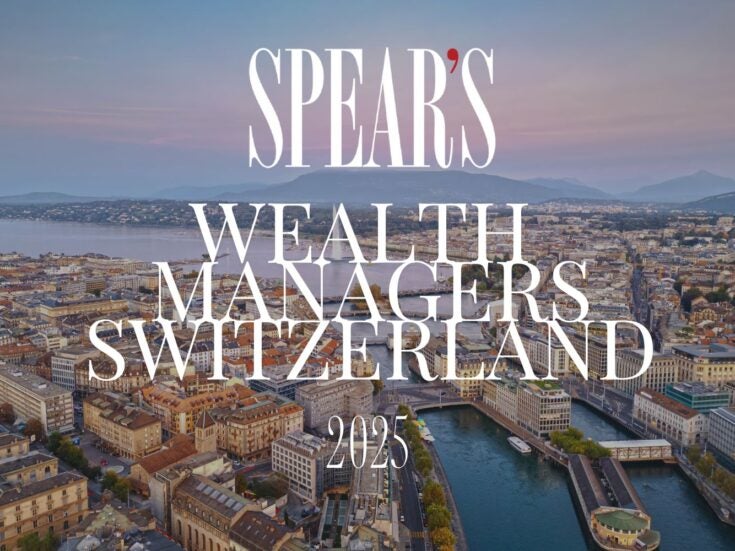
Would you Mind Holding?
While Europe’s leaders procrastinate, the markets stagnate and investment options complicate, says Guy Monson
THREE YEARS INTO what was always going to be a difficult, debt-laden recovery, world growth has started to splutter. The usual triggers for recession — tightening of financial conditions, bloated inventory levels and asset bubbles — are largely absent this time around. Instead it’s political and policy paralysis creating the dangerous environment for risk-taking and curtailing ‘animal spirits’. Corporations are postponing investment and hiring decisions, and households are holding back spending choices, waiting for the cloud of uncertainty to lift. As politicians dither, world growth is losing momentum.
This has not been a typical economic cycle. High levels of public and private indebtedness have dampened the rebound from the crisis, and GDP levels in most developed countries remain below those of 2008. Political wrangling and premature fiscal tightening now ominously threaten the recovery — as Christine Lagarde has said, ‘Fiscal policy must navigate between the twin perils of losing credibility and undercutting recovery.’
The Gordian knot is at its tightest in Europe, where political in-fighting weighs heavily on equity market sentiment. While the EU summit may have temporarily restored confidence, the freefall in European bond markets has re-accelerated, with Italian yields close to unsustainable levels and French spreads to Germany nearly at 25-year highs. With an almost €2 trillion bond market, and around €300 billion of borrowing needs for 2012, Italy clearly is too big to fail.

A default of the third-largest bond market in the world would have disastrous consequences, not only for the euro area but for the rest of the globe too. As the leveraged EFSF is hardly ready — and might not even have the ability — other backstop solutions are now desperately needed, and the only two possible tools out there are the ECB and the IMF.
The IMF can intervene in a variety of ways: fiscal supervision (without providing financial help), indirect financial assistance (short-term credit line) or direct financial assistance (via loans). However, at only $400 billion, the size of IMF firepower also seems limited, particularly considering that IMF lending is already skewed to Europe.
Despite (reluctantly) buying €180 billion of government bonds, the ECB government bond purchase programme remains well below the Fed’s or Bank of England’s. Moreover, unlike its US or UK peers, the ECB has not embarked upon pure quantitative easing: no new money was created through the government bond purchase, which annihilates any induced inflationary impact. The ECB thus has large enough tools and firepower to become the ultimate backstop option. And although two ECB members have already resigned (marking their fierce opposition to anything resembling debt monetisation), throughout the crisis the ECB has proven very flexible, and this time around should be no different.
On a fundamental basis, with interest rates close to historic lows and banking sector liquidity provision only a third below its previous highs, the bond purchase programme is increasingly the last available tool for the ECB. What’s more, a default from the third largest euro area economy would no doubt trigger a wave of contagion, which would then be highly deflationary, justifying de facto an ultra-loose monetary policy. In order to avoid a cataclysmic event (Italian default or, worse, a euro break-up) the ECB will no doubt act decisively — it’s just a matter of when this will occur.
THE BURDEN ON monetary policy is growing at a time when its effectiveness and even legitimacy are being questioned. Policy will remain extraordinarily easy and new measures will likely be put in place, but they will come with high levels of execution risk accompanied by political crossfire. The choice for investors is painful: embrace the ultimate security of core government debt and receive a crushingly negative real yield, or buy into some of the most compelling corporate cash-flow in a generation but accept the capital volatility and political risk that comes with it. Certainly, the pool of so called ‘risk-free’ assets is shrinking.
Our response for clients has been to use our thematic process to target sources of ‘inevitable growth’ which can still be relied upon in an otherwise low-growth world — these include ‘Demographics’ (dietary change, ageing and emerging-market middle-class demand), ‘Getting More from Less’ (robotics, trading down and data mining), and ‘Resource Security’ (base load electricity, priority infrastructure and deepwater offshore) — particularly where governments can point to job creation.
With many of these companies having dominant intellectual property, global market coverage and little or no gearing, they still represent compelling opportunities for long-term performance. Whatever the final outcome of Europe’s political wrangling, value for a yield-conscious investor is becoming increasingly hard to ignore.
Guy Monson is CIO and managing partner of Sarasin & Partners







